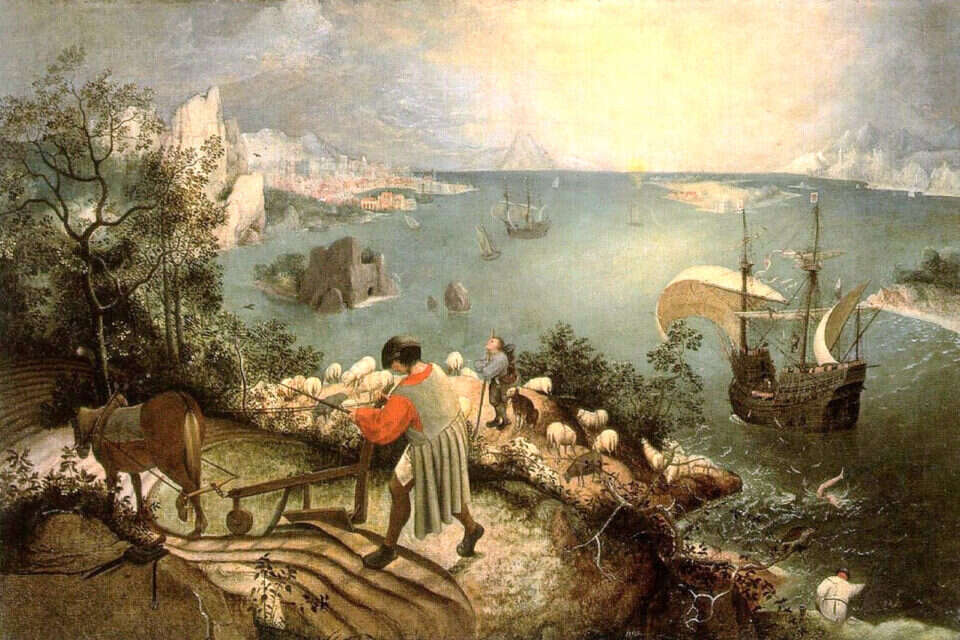Holocaust and anti-Semitism are without a doubt the most talked about topics in the Israeli public, and no less so in Hebrew literature, and there seems to be very little that has not been written about the subject.
"Memoirs of Antisemitism" by Gregor von Ratzuri, published in German in 1979 and now translated into Hebrew for the first time, nevertheless manages to provide a different and less familiar angle - certainly to the Israeli reader - on the phenomenon of European anti-Semitism and its origins.
Most of the plot takes place in the period between the world wars, and the narrator belongs to the old elite of Europe: a member of a secondary aristocratic family in the Romanian region, whose family lost its status and assets with the fall of the Austro-Hungarian Empire.
He is not really a Nazi: as a young man, most of his time and energy is invested in love affairs, in the search for employment and livelihood and in trying to find a place in the world.
Like everyone who lived in Eastern and Central Europe before the Holocaust, Jews are an integral part of his world.
And he is also anti-Semitic to the usual extent, no less and probably no more than all those around him.
Four of the book's five chapters take place in the narrator's youth, and are all closely related to his relationship with Jews: the first chapter deals with the transition from childhood to adolescence, the pain and loss of innocence involved in this transition.
Whoever opens his eyes to the ugly realities at the heart of the rural idyll in which his family lives is Wolf Goldman, a Jewish boy of his age with whom he connects and arouses in him appreciation and envy.
The second chapter describes the narrator's life in Bucharest, where he works as a failed salesman, and the romantic relationship he encounters with a Jewish widow who is almost double his age. The third chapter, still in Bucharest, describes the beginning of the narrator's literary path and his complex relationship with a young Jewish woman who arrives at the boarding house where he is staying. The fourth chapter takes place in Vienna over two periods of time - one of them during the days of the Anschluss - and is also related to an unusual romantic relationship that the narrator has with his Jewish neighbor. The fifth chapter takes place in Italy in the late 1970s and presents a kind of summary thoughts of the narrator about his life history, which are also the history of Europe throughout the 20th century - as well as his short and bitter relationship with his second wife, a Jewish Holocaust survivor.
The painting "Landscape and Fall of Icarus" by Peter Burgel presents an idyllic scene: a shepherd, ships at sea, a city in the distance - and on the side, almost hidden at first glance, the leg of the legendary hero, most of whom is already submerged in water. In "Memoirs of an Antisemitic" there is something smeared with this picture: it is a life story rich in details, interwoven with insights and spiced with many amusing anecdotes; It is easy to identify with the protagonist's concerns and his search for belonging. But the great events of the period are mentioned in it at most when they come up for a moment in living room conversations. The narrator is convinced that the Jews of Vienna's fear of the Reich is nothing but a typical Jewish persecution, and becomes aware of Anschluss only when a Nazi parade makes him late for a meeting with his beloved. At first glance there is something surprising about this, but as far as one thinks about it there is something very authentic about this experience: just as most of us, by contrast, encounter the global corona crisis especially when it affects our weekend plans.
It is said that exposure to language leads to its acceptance; But the narrator's constant exposure to Jews, and even the friendship and love affair he associates with some of them, do not in any way affect his anti-Semitism, which is reflected in his statements and impressions about Jews. In fact, it seems that sometimes the connection to the Jews stems precisely from anti-Semitism: they constitute for him the "other," which intrigues and rejects him at the same time; This is most clearly expressed in his relationship with the widow.
Antisemitism is not the basis of his identity, not an opinion that he will be killed or killed for it. The inferiority of the Jews is for him simply one of the facts of life: "Human beings of our kind - that is to say: educated and educated human beings - did not need such weighty arguments at all to see Jews as second-rate people. We just did not like them ... it was so understandable Naturally, just as natural as people like cats less than dogs, and fleas - less bees "(p. 252). There is something more understandable about his indifference, and therefore somewhat more disturbing, than the burning hatred of the Nazis; and regardless of his intentions, the fact is that he ultimately harms all the Jewish figures with whom he comes in contact.
Ratsuri's pace is quite slow, and entire pages are sometimes devoted to landscape and atmosphere descriptions. His writing is associative, contemplative, and includes insights on every subject - from the etymology of Yiddish to the quality of matriculation exams as an initiation ceremony (less significant than teeth grinding or testicle tattooing in native cultures). This is writing in the style of the "great novel" of the 19th century, and not in vain: the narrator himself is largely rooted in this period, a scion of the world that came to an end with the world wars. In this sense, the book can be seen as a double eulogy, for European nobility and European Jewry - two foreign worlds that were nevertheless part of the same picture of reality, and that were bound together by thickets of attraction and contempt.
This theme culminates in its power and development in the fourth part of the book, which presents the last moments before the storm that consumed the two worlds; And it is possible that this can also explain the relative weakness of the fifth part, which seals the book. This section seeks to present some final conclusion, but there is something chatty and unfocused in it, alongside the timeless complaint about the shortcomings of "Today's Youth." The narrator, like the author, marvels at talking about the old world; In this new one, his insights are less relevant.
"Memoirs of an Antisemitic" has a strong autobiographical dimension: the narrator's resume is remarkably similar to that of the writer, and at one point he even adopts the name Gregor.
The book can, therefore, be read as an account of the author himself.
One of the central issues in the Holocaust discourse is those who stood aside, not from fear but from indifference.
Here we have an honest and sober testimony of the one who stood against, of the one whose main guilt is that he held the common opinions of his time and status, and that he sought to live his life in order despite the horrors that had already begun to stir around him.
In this context, and beyond its literary quality, it is an important record for every person, in every period.
Memoirs of Antisemitic / Gregor von Ratzuri;
From German and lastly: Hanan Elstein;
Ahuzat Beit, 391 pages
Were we wrong?
Fixed!
If you found an error in the article, we'll be happy for you to share it with us








